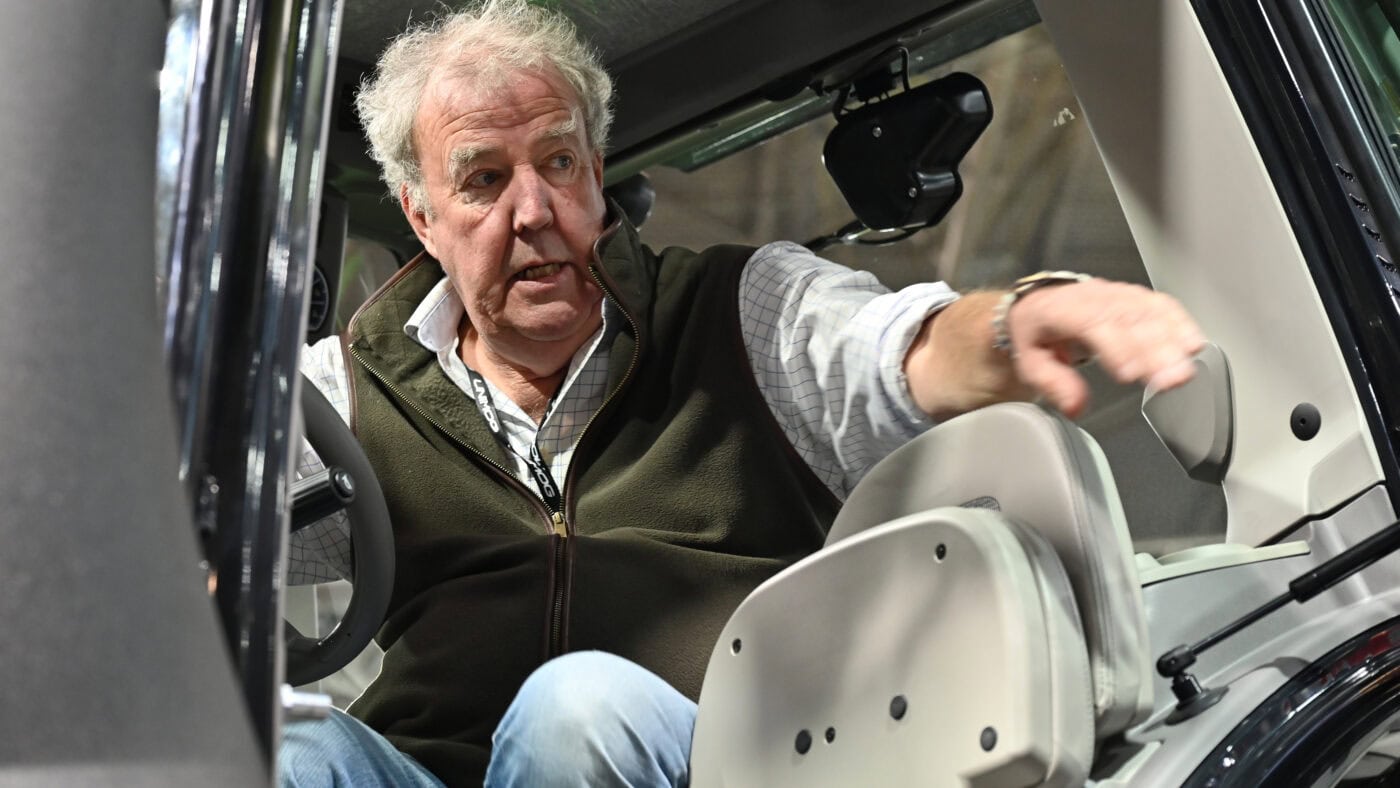‘Clarkson’s Farm’, the fourth season of which recently concluded on Amazon, is a remarkable artefact. Not even had they wished on a magic lamp could critics of Britain’s sclerotic state been handed a more potent weapon than one of this country’s most charismatic TV personalities, backed by indisputably its most talented production team, trying to start a business and filming it.
It can be a bitter pill for wonks and wordsmiths to swallow, but there really is no beating visual media for changing minds at pace and at scale. But if a picture is worth a thousand words, what is the exchange rate on a documentary? A ‘Mr Bates vs the Post Office’ for Yimbys?
Actually, ‘Clarkson’s Farm’ is better. For a scripted drama, even a very well-made one, is a deliberate narrative contrivance; even one based on real events must curate what it portrays, and will usually do so in pursuit of a tidy, compelling narrative.
One can do the same with documentaries, of course; it is foolish to ever forget the power of editing and post-production in factual programming. But to his very great credit, Jeremy Clarkson has in this latest season allowed ‘Clarkson’s Farm’ to illustrate lessons at his expense, when the root of the problem is not the dogma of councillors or planning officers, but his own.
The occasion for this was his new pub, the establishment of which (if you have somehow missed the show) was the focus of the season. For the first five or six episodes, it follows the pattern charted in previous seasons: Clarkson, his cup running over with both goodwill and cash, hunts for a Cotswold pub to save, only to be thwarted time and again by absurd costs and regulations.
So far, so ‘Clarkson’s Farm’: our hero shining a light on how British bureaucracy is strangling yet another British institution. It even seems to be building to another climactic confrontation with the hated West Oxfordshire District Council when, after he finally finds a suitable pub, it turns out to be a legally-protected picnic area and infamous dogging site.
Then comes the twist: the council, apparently hating dogging even more than Clarkson, immediately agrees to scrap the picnic area and public right of way. Nothing now stands in the way of our star’s new venture – or so it seems. For the stage has now been set for the show’s real showdown: Clarkson versus economics.
Underpinning his decision to buy a pub (and justifying the decision to include it in the show) is Clarkson’s determination that it will stock exclusively British produce. More than that, its core inventory will be ultra-local: the ‘farmers’ cooperative’ he tried to establish in Season 2 is revived to furnish the meat, dairy and produce.
Viewers who have followed Clarkson on his journey over previous seasons will, naturally, see these virtues as almost self-evident; the man himself certainly does. But it unleashes an avalanche of problems, and episodes six through eight consist in large part of experienced professionals, including a butcher and Nick, the pub’s heroic chef, trying to explain why.
There are higher costs, of course, and some necessary menu restrictions, although Clarkson’s decision to ban Coca-Cola is pure reflex, as it is manufactured and bottled in Britain. Nick then has to try and draw up a menu with severely restricted access to spices (save ‘the tiniest amount of Cornish-grown black pepper’), because they don’t grow here.
Then the butcher points out that if they want to sell meat in an adjacent farm shop, it will need preservatives – and these, unlike Coke, are not manufactured in Britain.
And then, in the final episode, the pub runs out of food – and a very tired Nick has to explain why restaurants use wholesalers, who can guarantee reliable supply by working with a large number of producers, rather than directly with farmers whose output, as ‘Clarkson’s Farm’ has illustrated at some length, is at the mercy of the weather and their own timetables.
Some reviewers have suggested that the programme has lost its focus on farming this season, much as ‘Top Gear’ gradually lost its dry focus on cars to become a car-themed show about Clarkson. Still outstanding television, most likely, but lacking something that originally made it special.
I disagree. If anything, the saga of the Farmer’s Dog pub is not only entirely on theme, but an essential and remarkably brave extension of it.
Had Clarkson confined himself, or at least his show, purely to farming, he could have continued to hit the producer-interest theme he developed across the first three seasons. It would be easy to shoot himself, looking glum at the latest setback and then perhaps striding indignantly around a supermarket, its shelves filled with foreign produce whilst local farmers struggled.
It took considerable guts, even for a man with Clarkson’s financial security, to step up and actually test his thesis in the real world – and even more to allow the effort to be filmed, and include in the final version lots of footage of well-informed people setting out, time and again, the holes in his thesis. It’s not often you get premium television explaining why middlemen matter.
Some of the problems are easily fixed. He could and should give way on preservatives (he is fighting for farmers, not as-yet-non-existent chemical startups) and spices (it is a miracle of modernity that anyone can now buy in a supermarket commodities over which wars were previously fought). Others, especially the shortcomings of the cooperative model, less so.
Either way, however, Season 4 has only cemented ‘Clarkson’s Farm’s’ well-earned position at the very pinnacle of current factual programming, informative, educational and entertaining in equal and abundant measure. What an irony that the BBC never made it.
Click here to subscribe to our daily briefing – the best pieces from CapX and across the web.
CapX depends on the generosity of its readers. If you value what we do, please consider making a donation.


